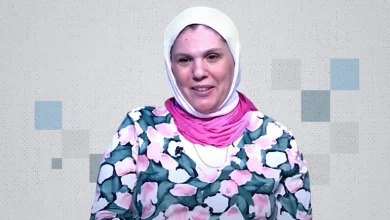Reaching the age of 30, women often face a significant loss of vitamins and minerals due to childbirth and the stress of work while striving for financial stability. Essential Vitamins for Women After 30 ,This pivotal life stage demands a focus on dietary habits to ensure the daily intake of all vital nutrients, with nutritional supplements playing a key role in maintaining overall health. Are Nutritional Supplements Necessary?
Nutrition expert Zola Johnson, in her article on “Life Hack,” highlights that women at this age experience various physical changes and hormonal imbalances, leading to unique nutritional needs. She advocates for a balanced diet as the ideal way to receive necessary vitamins and minerals. However, due to the declining quality of food and extensive processing, natural diets often fall short in meeting nutritional requirements. Johnson suggests supplements as a means to ensure adequate intake of essential elements or as a substitute for those following specific diets, like vegetarianism, which restricts certain food items.
Johnson emphasizes that vitamin supplements help in:
- Balancing hormones and thyroid function.
- Preventing anemia caused by menstrual cycles and childbirth.
- Compensating for vitamin deficiencies due to stress, life pressures, or medication intake, including birth control pills.
The List of Indispensable Vitamins for Women Post-30 Includes:
- Folic Acid (Vitamin B9): Essential for brain health, memory, cell growth and reproduction, mood improvement, and found primarily in leafy greens.
- Iron: Crucial for women’s health, available in spinach, broccoli, red meat, and legumes. Iron deficiency, common in non-pregnant women (30%) and pregnant women (40%), leads to anemia, causing fatigue, insomnia, headaches, and energy loss.
- Calcium: Obtained from dairy products, nut milk, and orange juice, calcium constitutes 1-2% of a woman’s body and is vital for bone health. A 2017 study showed that osteoporosis is four times more common in women, with bone density decreasing after 30.
- Magnesium: Assists in calcium absorption, vitamin D metabolism, muscle and nerve functions, and is involved in over 300 bodily processes. Found in legumes, leafy vegetables, and nuts, magnesium deficiency can lead to muscle cramps, fatigue, nausea, and mood disorders.
- Vitamin D: Known as the ‘sunshine vitamin’, it is essential for brain, muscle, bone, teeth health, and fighting wrinkles. Available in eggs, dairy products, red meat, poultry, its deficiency affects nearly a billion people worldwide.
- Omega–3: Vital for combating depression, anxiety, and enhancing skin health and cognitive functions. Found in salmon, sardines, mackerel, avocados, olive oil, and nuts, doctors often recommend supplements for adequate intake.
- Antioxidants: Found in plant-based foods, they delay cell damage from free radicals. A 2019 Portuguese study highlighted the importance of dark, colorful foods in a diet for a diverse range of antioxidants. Vitamin C, a significant antioxidant, is abundant in fruits like oranges and vegetables like tomatoes, broccoli, and peppers.
- Zinc: Supports the immune system, protein production, wound healing, and enhances the sense of smell and taste. Rich sources include nuts like almonds, cashews, pine nuts, dairy products, and dark chocolate.
- Prebiotic Supplements: Beneficial bacteria that promote gut health, weight reduction, and alleviate irritable bowel syndrome. Naturally found in yogurt, soybeans, garlic, onions, and artichokes.
It’s generally advised to consult a physician before starting any vitamin supplements, as overconsumption and excessive dosages can cause side effects and harm the body.
For more detailed information and health tips, visit dzwatch.net, Essential Vitamins for Women After 30.



